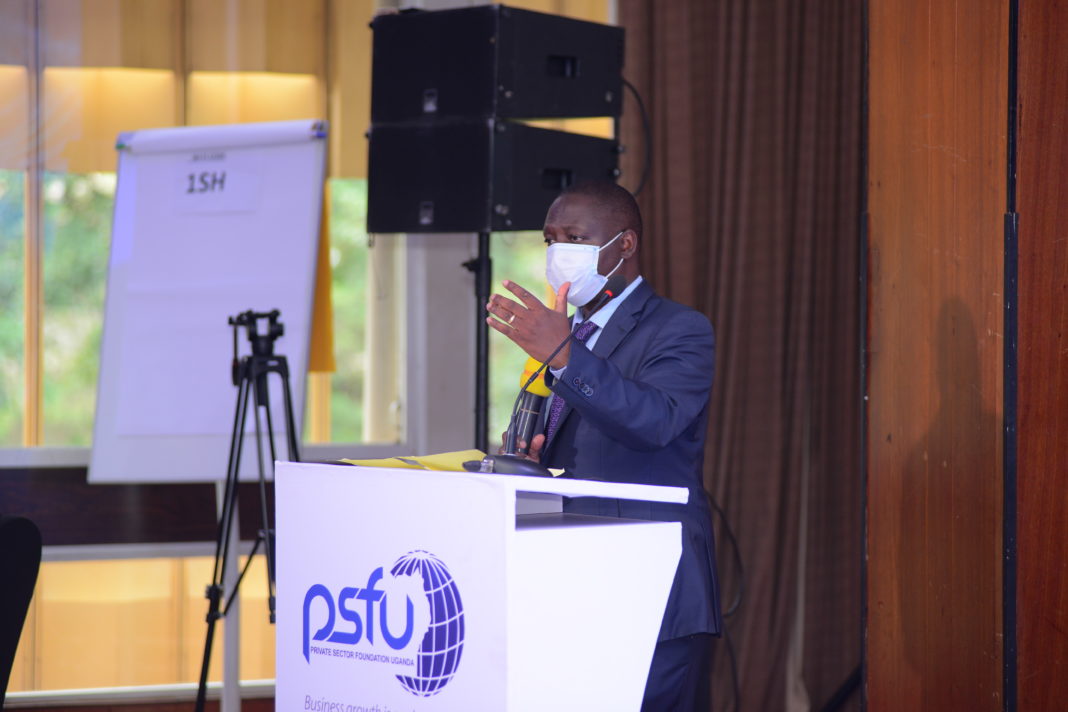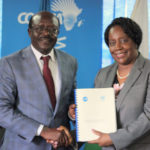Minister of State for Trade, Industry and Cooperatives, David Bahati has called for coordination and information sharing to man down illicit trading. The minister said during public-Private sector dialogue on illicit trade.
According to the Economic Development on Africa Report of 2020 by the United Nations Conference on Trade and Development, Africa loses 88.6 billion US Dollars annually to illicit trade. Similarly, Uganda loses approximately Shs 50 billion annually to illegal trade.
Illegal trade is a threat, perpetrating exposure to consumption of unsafe and harmful products which among others causes cancer. It perpetuates poverty and in most cases the products do not meet the minimum quality standards and are not fit for purpose and have no value for money.
Most commodities are traded in the countryside, where poor people have no options and sometimes they try to underprice them to be able to get the market. We need to focus on making sure that we deny them the market.
Bahati said we need to see the action being to end this danger of illicit trade. Illicit trade involves production, distribution of goods, and products. It is a danger to our economy, revenue, a threat to our health and security because evil people use it as an avenue to raise money to fund insecurity in the country.
“I lost eight people in my constituency to illicit alcohol dubbed ‘waragi’ and may have lost sight. We know what needs to be done but the question is how we can take a further step because we have tried our level best in terms of legislation. What is lacking is the coordination between government agencies to be able to share information, coordination,” he said.
He said information sharing is key. When URA detects something; it should be able to inform UNBS to alert other different companies. Illicit trade is a complicated issue. But at the same time, it’s something that can be resolved and UNBS has an important role to play if they are supported.
Most commodities are traded in the countryside, where poor people have no options and sometimes they try to underprice them to be able to get the market. We need to focus on making sure that we deny them the market.
David Livingstone Ebiru, the Executive Director of UNBS said illicit traders are not formally registered with the Uganda registration Services Bureau-URSB, and therefore, it is very difficult to trace them in the first place. For purposes of enforcement, you need location and contact and this is one of the challenges we must address to have these sectors formalized through registration of their businesses.
“Once they are not registered, they are not certified because one of the requirements of the NBS for you to get a quality mark, you must register your business because we have a duty also to protect your brand. Illegal products are being made from ungazetted places such as backyards, garages and therefore we cannot guarantee the quality and safety of these products,” he said.
He urged illicit traders to formalize their business for them to benefit from the available opportunities including supplying goods and services to various government entities and formal places which give them opportunity to work to sell and grow their business.
“We will continue creating awareness about the benefits of standards because they are the only key to the market both local and international and persuade people to voluntarily become self-regulated to embed that quality to themselves to their business that what is good to me should be what is good for the market,” he said.
He said UNBS has reduced the cost of certification so that micro small enterprises in this illicit and illegal trade are encouraged to come forward to formalize their businesses.








